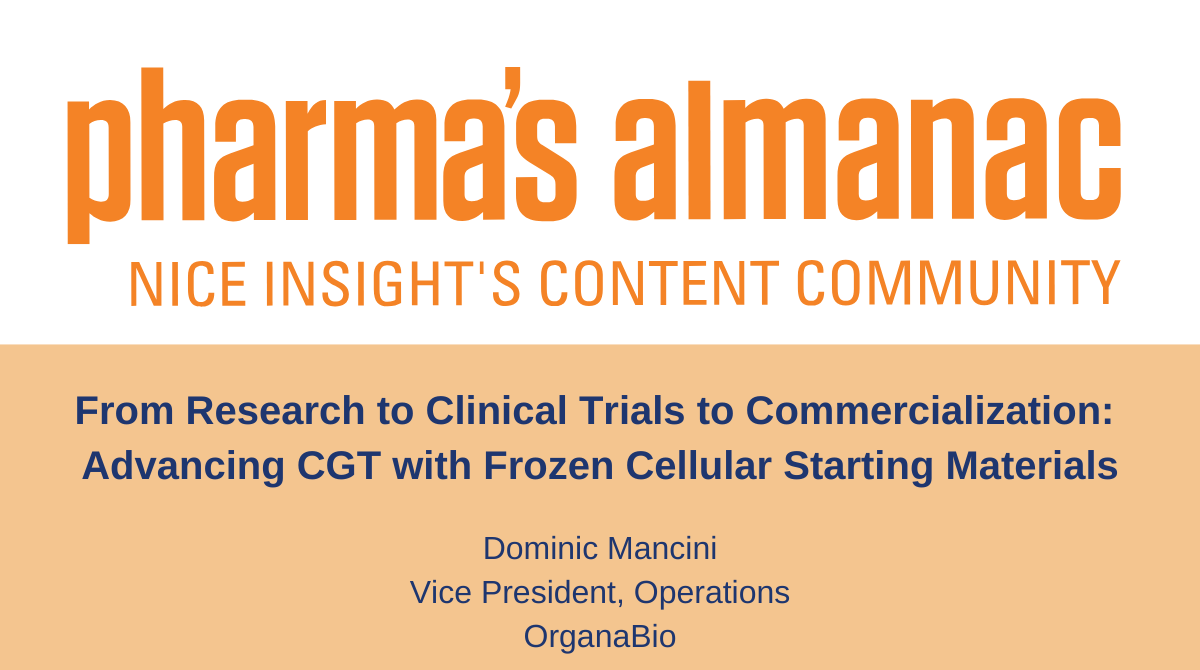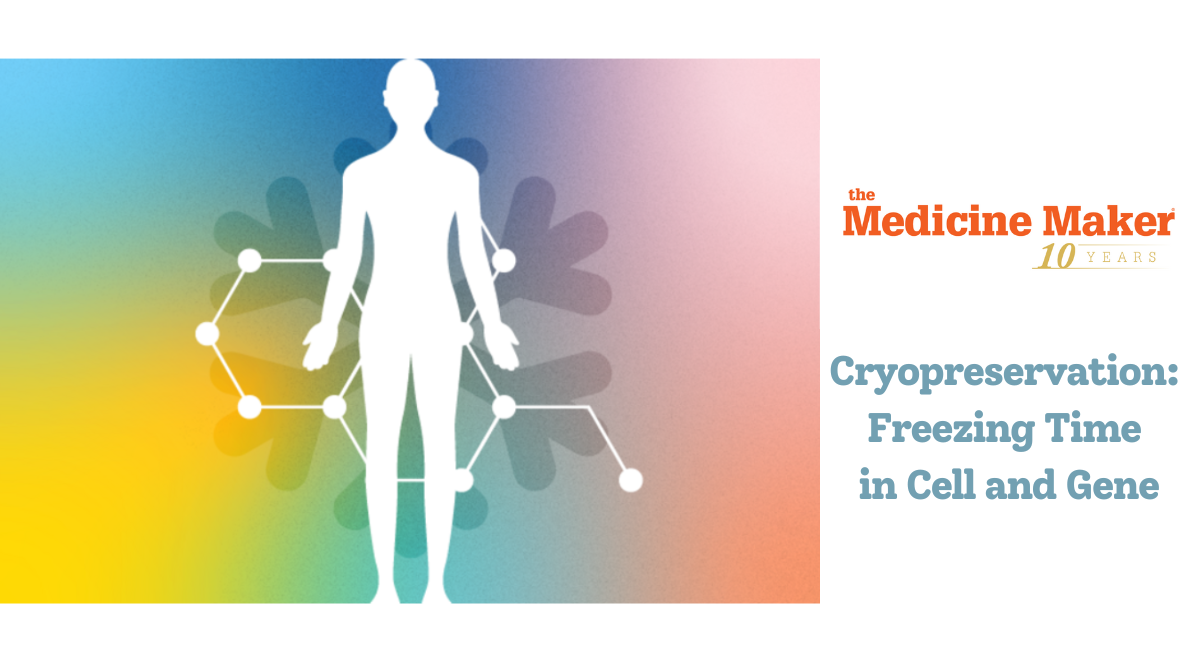Over the last several years, the field of cell therapy has rapidly advanced and became a promising strategy to combat disease. The cell therapy global market is expected to reach $20B by 2023.1 Immune cell-based therapies comprise roughly 36% of the cell therapy market2 and are expected to grow at a CAGR of 15.5% by 2025.3 It is also expected that the FDA will approve 15-20 novel cell and gene therapies every year by 2025 with a total of 40-50 approvals by 2030.4 Cell sources for these therapies include bone marrow, peripheral blood, and perinatal tissues.
Human perinatal tissues are uniquely rich in progenitor cells of different kinds and have been studied and used in a variety of therapeutic applications. Cells isolated from umbilical cord blood (UCB), umbilical cord (UC), and placenta have been utilized to repair the underlying mechanisms of disease initiation and progression. Some of the most prominent disorders include hematological (leukemia, lymphoma, multiple myeloma), cardiovascular, neurological (Parkinson’s disease, amyotrophic lateral sclerosis, stroke, spinal cord injury), autoimmune (type 1 diabetes, multiple sclerosis, Crohn’s disease), ophthalmologic, renal, liver and skeletal (osteoarthritis) diseases.5-7
Mesenchymal stromal/stem cells (MSCs) from birth tissue have been shown to be optimal for cell-based therapies due to immune-privileged characteristics, resilience to environmental stress, low likelihood to cause graft-versus-host disease (GvHD), and increased proliferation and differentiation ability compared to other tissue sources such as bone marrow.5-7 In a recent publication, investigators demonstrated safety and feasibility of UCB-derived MSCs transplantation into preterm infants with intraventricular hemorrhage with no adverse events.8 Other studies have focused on the immunomodulatory properties of MSCs due to their ability to suppress activated immune cells and prevent autoimmunity and GvHD.7 In addition, the use of MSC‐derived extracellular vesicles was found to contain various growth factors with potential to boost the body’s natural ability to heal itself.6 In the recent COVID-19 pandemic, the immunosuppressive capabilities of MSCs are being explored as treatment against COVID-19-associated cytokine release syndrome. In a recent study, 7 COVID-19 infected individuals with severe pneumonia were treated with intravenous MSCs. These patients did not experience any adverse events and exhibited improvements in outcome and cure.9,10 For more information on clinical trials using MSCs for COVID-19, see our recent blog post here.
Umbilical cord blood is also enriched in hematopoietic stem cells (HSCs) and other primitive immune cells. Aside from HSCs and progenitor cell transplantation, UCB-derived cells can also be utilized in adoptive cellular immunotherapy. UCB-derived T cells can be rapidly expanded and easily genetically modified for generation of TCR engineered T and CAR T cells. 11 In a study comparing peripheral blood T cells and UCB T cells, the latter exhibited improved proliferation, anti-tumor cytotoxicity, and better homing functions compared to T cells from peripheral blood.12 Additionally, UCB-derived virus-specific T cells were recently shown to be safely and effectively administered to stem cell transplant recipients in order to prevent and treat viral reactivation.13 In the same study, transferred UCB-derived virus-specific T cells persisted for up to 1 year in transplant recipients.13 A different study described the safe and effective development and manufacturing of UCB-derived CAR NK (natural killer) cells for treatment of lymphoid tumors.14 Unmanipulated UCB-derived NK cells are also used in allogeneic cell therapy. UCB-derived NK cells were used to treat patients with multiple myeloma. Patients did not experience infusion-related toxicities or GvHD, and treatment resulted in good clinical outcomes.15 Another group of scientists successfully expanded T regulatory cells from UCB under Good Manufacturing Conditions in order to be used in the clinic.16 Clinical trial results determined that expanded UCB-derived T regulatory cells are safe and prevent GvHD.17 UCB-derived T regulatory cells can also be used to treat type 1 diabetes, lupus, and the high inflammation associated with the current COVID-19 pandemic.18There are currently 18 active COVID-19 clinical trials utilizing immune cells listed on clinicaltrials.gov. Although no clinical trials were completed to date, understanding the SARS-CoV-2 impact on the immune system is growing rapidly. This drives further development of immune cell-based therapies for COVID-19 clinical trials.19 Read more on immune cell clinical trials for COVID-19 here.
Many other cell therapies and expansion techniques are being investigated. There are currently thousands of pre-clinical and clinical studies which use the progenitor-rich perinatal tissues as starting material for development and manufacturing of adoptive cell therapies.6,11
References
- Market Research Future Cell Therapy Market Research Report- Global Forecast till 2023
- Root Analysis Cell Therapy Manufacturing Market (2nd Edition), 2018-2030
- Mordor Intelligence Cell Based Immunotherapy Market – Growth, Trends, and Forecast (2020 – 2025)
- Quinn C, Young C, Thomas J, et al. (2019) MIT NEWDIGS FoCUS Writing Group. Estimating the Clinical Pipeline of Cell and Gene Therapies and Their Potential Economic Impact on the US Healthcare System. Value Health. 22(6):621–626.
- Silini AR, Masserdotti A, Papait A and Parolini O. (2019) Shaping the Future of Perinatal Cells: Lessons from the Past and Interpretations of the Present. Front. Bioeng. Biotechnol. 7:75.
- Pittenger MF, Discher DE, Péault BM, et al. (2019) Mesenchymal stem cell perspective: cell biology to clinical progress. Npj Regenerative Medicine. 4:22.
- Ekblad-Nordberg Å, Walther-Jallow L, Westgren M, Götherström C. (2019) Prenatal stem cell therapy for inherited diseases: Past, present, and future treatment strategies. Stem Cells Transl Med. 9:148–157.
- Ahn SY, Chang YS, Sung SI, Park WS. (2018) Mesenchymal Stem Cells for Severe Intraventricular Hemorrhage in Preterm Infants: Phase I Dose-Escalation Clinical Trial. Stem Cells Translational Medicine. 7:847–856.
- Leng Zikuan, Zhu Rongjia, Hou Wei, et al. (2020) Transplantation of ACE2– Mesenchymal Stem Cells Improves the Outcome of Patients with COVID-19 Pneumonia[J]. Aging and disease. 11(2): 216-228.
- Atluri S, Manchikanti L, Hirsch JA. (2020) Expanded Umbilical Cord Mesenchymal Stem Cells (UC-MSCs) as a Therapeutic Strategy in Managing Critically Ill COVID-19 Patients: The Case for Compassionate Use. Pain Physician. 23(2):E71–E83.
- Lo Presti V, Nierkens S, Boelens JJ & van Til NP. (2018) Use of cord blood derived T-cells in cancer immunotherapy: milestones achieved and future perspectives, Expert Review of Hematology, 11:3, 209-218.
- Kwoczek J, Riese SB, Tischer S, et al. (2018) Cord blood-derived T cells allow the generation of a more naïve tumor-reactive cytotoxic T-cell phenotype. Transfusion. 58(1):88–99.
- Abraham AA, John TD, Keller MD, et al. (2019) Safety and feasibility of virus-specific T cells derived from umbilical cord blood in cord blood transplant recipients. Blood Adv. 3 (14): 2057–2068.
- Liu E, et al. (2020) Use of CAR-Transduced Natural Killer Cells in CD19-Positive Lymphoid Tumors. N Engl J Med. 382:545-53.
- Shah N, Li L, McCarty J, et al. (2017) Phase I study of cord blood-derived natural killer cells combined with autologous stem cell transplantation in multiple myeloma. Br J Haematol. 177(3):457–466.
- Brunstein CG, Miller JS, McKenna DH, et al. (2016) Umbilical cord blood-derived T regulatory cells to prevent GVHD: kinetics, toxicity profile, and clinical effect. Blood. 127(8):1044–1051.
- McKenna DH Jr, Sumstad D, Kadidlo DM, et al. (2017) Optimization of cGMP purification and expansion of umbilical cord blood-derived T-regulatory cells in support of first-in-human clinical trials. Cytotherapy. 19(2):250–262.
- Esensten JH, Muller YD, Bluestone JA, Tang Q. (2018) Regulatory T-cell therapy for autoimmune and autoinflammatory diseases: The next frontier. J Allergy Clin Immunol. 142(6):1710–1718.
- Immune Cell-Based Therapies for COVID-19 (November 2020 update). November 4th, 2020. https://www.organabio.com/blog/immune-cell-based-therapies-for-covid-19-november-2020-update/






